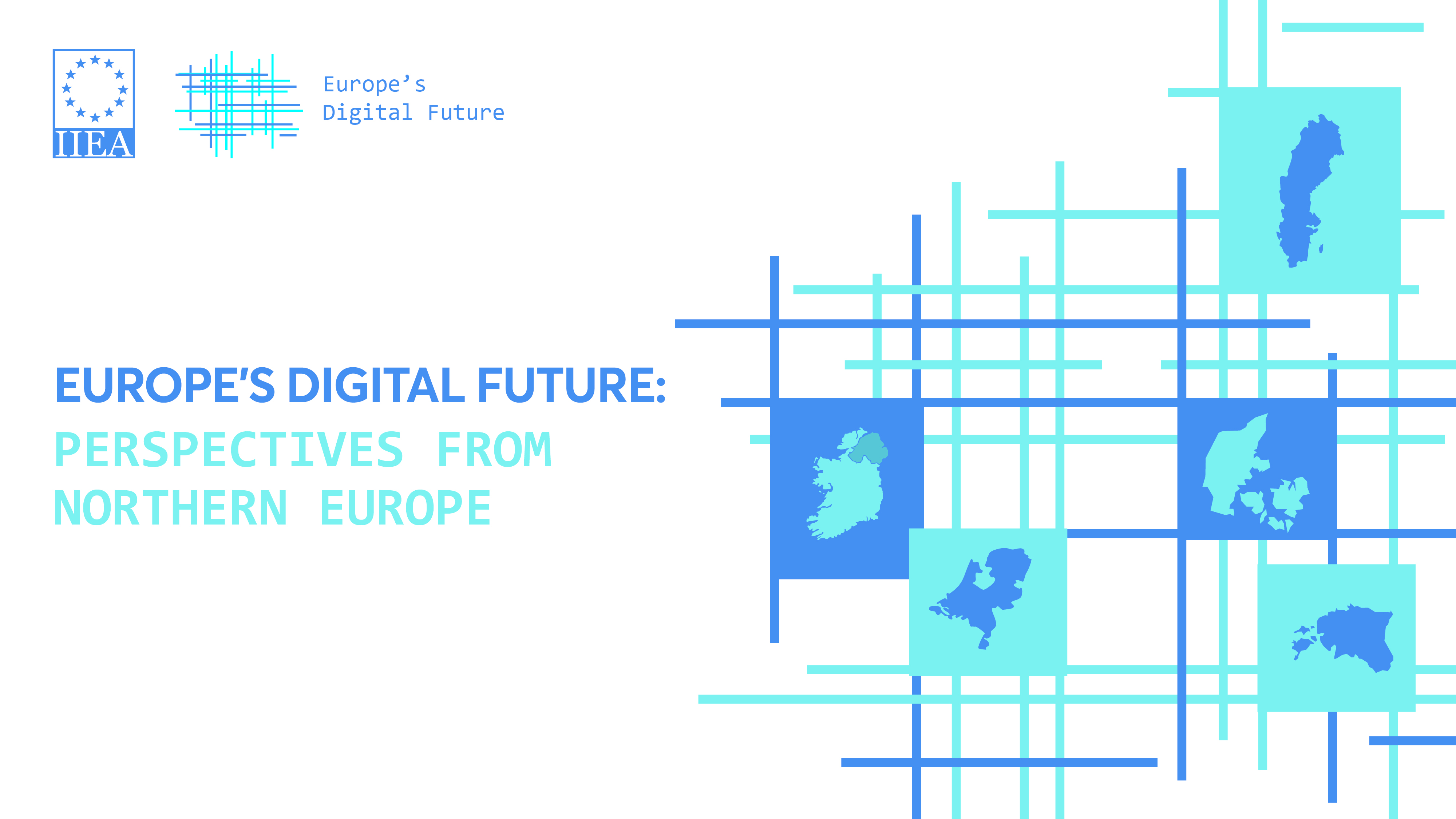Europe’s Digital Future: Perspectives from Northern Europe

This first joint report by a transnational network of think tanks convened as part of the IIEA’s Europe’s Digital Future network seeks to highlight the perspectives of some of Europe’s ‘digital frontrunner’ states, and to provide a framework for future debate and discussion of the emerging concept of digital sovereignty in Europe. This report consists of short papers outlining the national perspectives of each participating Member State.
First, Jan Høst Schmidt of Think Tank Europa outlines Denmark’s view of the topic. He notes his country’s more sceptical view of the concept of European digital sovereignty, but identifies important European digital policy priorities which Denmark supports. Dr Adrian Venables of the Tallinn University of Technology (TalTech) highlights the positive contribution Estonia may be able to make to the development of European digital sovereignty by drawing on
Estonia’s experience as a leader in digitalisation. Séamus Allen of the Institute of International and European Affairs (IIEA) in Ireland describes how European digital sovereignty may have implications for many of Ireland’s key interests, although to date the concept itself has received little attention in Ireland’s public discourse. Brigitte Dekker of the Clingendael Institute presents the prominent discussion on digital sovereignty taking place in the Netherlands and outlines how the Netherlands is playing an active role in shaping Europe’s digital policies. Finally, Gunnar Hökmark, of the Stockholm Freeworld Forum, provides a perspective from Sweden, noting his country’s preference for a Europe that is open and competitive, and which does not close itself off from an increasingly digitalised world.
The individual country papers are also available for download:
Europe’s Digital Future is an IIEA-led project, which is supported by Google. The views expressed in this publication are those of the authors alone.
